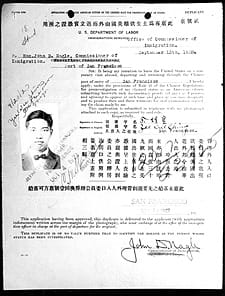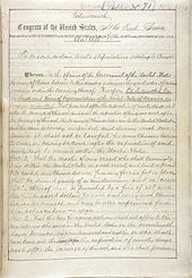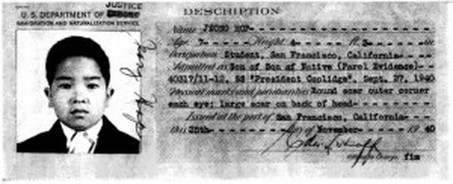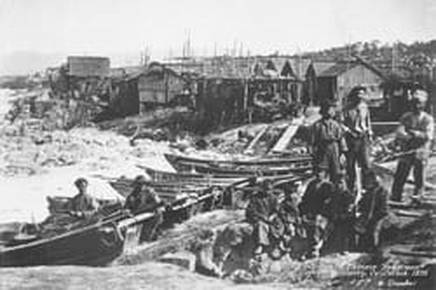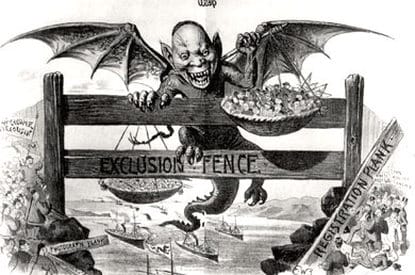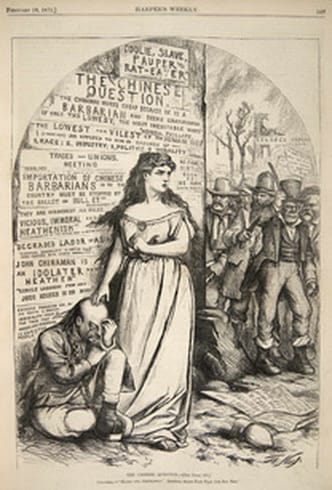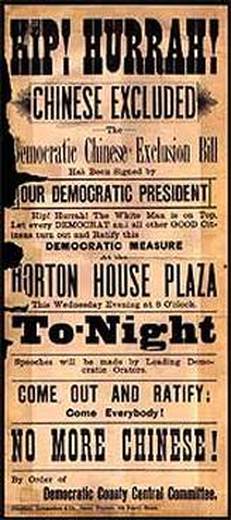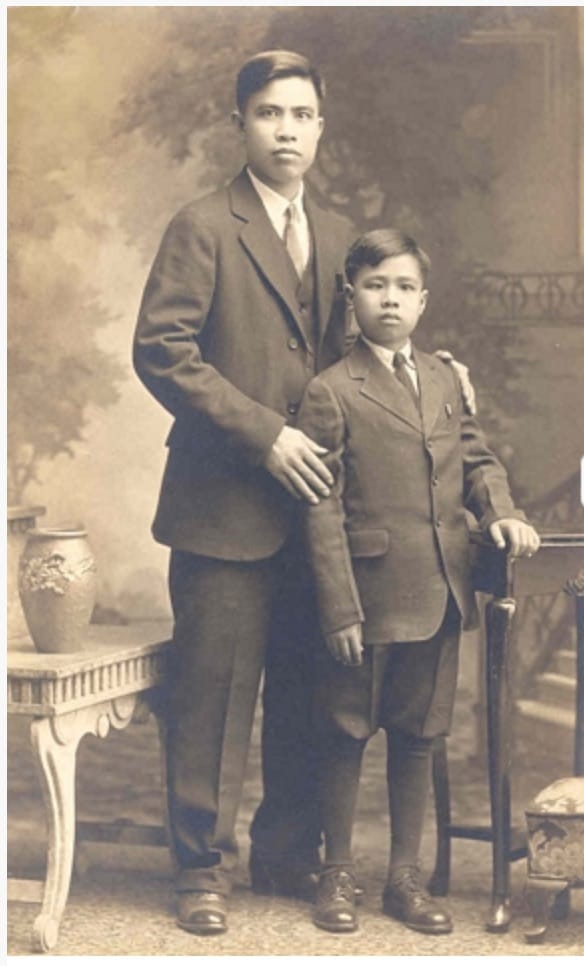|
The Chinese Exclusion Acts were passed to keep Chinese workers from immigrating and taking American jobs. This is the first and only group of people that were excluded from immigrating based upon their country. The Acts meant the Chinese could no longer come to the U.S., with few exceptions. Some still came with fake documents, known as "paper sons," pretending to be related to other people already here. The Acts affected where the Chinese migrated after the Civil War, and were in effect until during World War II.
"Transcript of Chinese Exclusion Act (1882) |
Image above: "A political cartoon from 1882, showing a Chinese man being barred entry to the "Golden Gate of Liberty". The caption reads, "We must draw the line somewhere, you know." Frank Leslie's illustrated newspaper, vol. 54 (1882 April 1), p. 96." -courtesy of United States Library of Congress. "Frederick Douglass, whose people were just freed from slavery and fighting themselves for equal rights in American society, advocated for inclusion of the Chinese immigrants: 'The voice of civilization speaks an unmistakeable language against the isolation of families, nations and races and pleads for composite nationality as essential to her triumphs." -from "Chinese Americans in the United States," Brooklyn Public Library Video Clip Above: “During the period after the Civil War, Chinese laborers in America were plentiful, hard-working, and inexpensive to hire. They were willing to do almost any job asked of them, often at great risk to themselves. Because of this, and the fact they dressed differently, ate differently, and spoke a language that sounded so strange to the American ear, the Chinese worker was soon seen as a threat to white labor. That threat led to fear, and that fear became the impetus for the Chinese Exclusion Act passed by Congress in 1882. This act prohibited immigration of Chinese laborers into the United States. The Chinese are the only nationality to have a law specifically written, prohibiting them from immigrating to the United States.” -From Honor and Duty: The Mississippi Delta Chinese, A Three-Part Documentary Series, narrated by E. Samantha Cheng, (C) Heritage Series, LLC, 2016. All rights reserved. "Due to the increasingly hostile treatment from the whites who reacted with riots and violence to the threat of cheap Chinese labor, many Chinese fled from cities into rural and farming areas away from the West coast."-John Jung |
